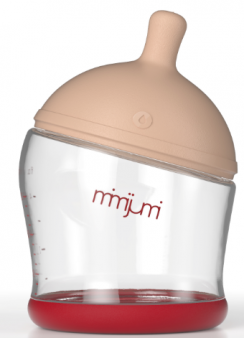Self-tan the natural way
Author and mother of two Emma Hannigan, 42, carries the faulty BRCA1 gene and has now had nine episodes of breast cancer, for which she has ongoing chemotherapy. Emma feels passionately that women should still feel beautiful during chemo – and in the summer, a tan certainly helps. So she teamed up with TanOrganic, an award-winning organic self-tanning brand, which avoids synthetic chemicals that are unsuitable during chemo. For each bottle of TanOrganic sold in Waitrose stores, 35p goes to cancer research charities.
Q. My GP has told me I have a prolapse of my womb and is referring me to a consultant at the local hospital. Can you tell me more about it and what treatments are available? I am 52 and have two teenagers.
A. As you say in your longer question, prolapse of the womb or uterus feels like something coming down and may hang out of the vagina. It is not life-threatening, but it is worrying. It can also cause discomfort during sex and create a psychological barrier to make love anyway. Other problems include difficulty passing urine, leaking and change in bowel motions.
Consultant gynaecologist Mr. Michael Dooley (www.mdooley.co.uk) says that prolapse needs expert assessment. It is often linked to pregnancy and childbirth, as the stretched tissue never returns to its original shape. Changes after menopause are often another factor, as a decrease in oestrogen levels (also caused by smoking) leads to lower collagen, the protein that gives strength and ‘bounceback’ to our tissues. Your doctor may consider local oestrogen therapy in the form of a tablet or cream inserted into the vagina.
Large fibroids or pelvic cysts, being overweight or suffering from constipation can also be contributory factors, as they put pressure on the supportive tissues.
There are various things you can do now. These include exercising your pelvic floor muscles – your GP can refer you to a physiotherapist who is experienced in this area. Biofeedback and/or electro-stimulation of the vaginal muscles may be used. Eat a high-fibre diet for constipation (plenty of vegetables, fruit and water), take exercise and lose weight (if this is relevant). If you have a cough, make sure it is treated.
Patients with prolapse could have a vaginal hysterectomy (where their womb is removed via the vagina). However, this may lead to the top of the vagina hanging down, so some surgeons attach it to a ligament in the groin. Mr Dooley prefers keyhole surgery, where small cuts in the abdomen enable the surgeon to put tape around the womb, then pull it up and staple it to the backbone. ‘This means no hysterectomy, and pregnancy is still possible for women of childbearing age. Prolapse can be disturbing, but there is lots of help available,’ he says.
 A feeding bottle with an angled teat that looks and feels like a mother’s breast may ease the process of weaning babies. When her son Riley rejected her expressed milk from 15 different bottles, Ashley King panicked about returning to work, but then she found the Mimijumi baby bottle online in the US and he took to it immediately. Ashley now has the European rights for the Mimijumi ‘back-to-work’ bottle, which is available in two sizes for ‘Not So Hungry’ and ‘Very Hungry’ babies. From £14.99 with free UK delivery, www.mimijumi.co.uk.
A feeding bottle with an angled teat that looks and feels like a mother’s breast may ease the process of weaning babies. When her son Riley rejected her expressed milk from 15 different bottles, Ashley King panicked about returning to work, but then she found the Mimijumi baby bottle online in the US and he took to it immediately. Ashley now has the European rights for the Mimijumi ‘back-to-work’ bottle, which is available in two sizes for ‘Not So Hungry’ and ‘Very Hungry’ babies. From £14.99 with free UK delivery, www.mimijumi.co.uk.
WEBSITE OF THE WEEK: www.cardiomyopathy.org
YOU reader Jenny Rees, 22, was diagnosed with cardiomyopathy (chronic disease of the heart muscle) as a baby and says, ‘The charity Cardiomyopathy UK has been an enormous help to me and also my parents as I grew up. My mum and I run a local support group and are both “key contacts” for other young people with a diagnosis and their parents. The charity has just launched this new website, with comprehensive information about the disease, local contacts and the latest treatments and research. We would like other YOU readers affected by cardiomyopathy to know about this resource.’
